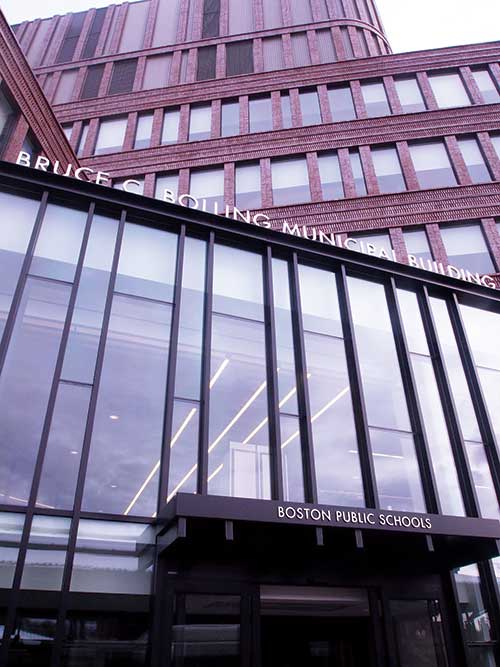How will LOOK bill affect Hub schools?
Bilingual education advocates optimistic about new legislation

With the recent passing of An Act Relative to Language Opportunity for Our Kids (LOOK) in the House and Senate, community leaders and educators subsequently hope to see more diversity within Boston Public Schools faculty to better educate Boston’s diverse school population, including English language learners.
The bill reverses a prior mandate that required schools to use Sheltered English Immersion as the only learning model and grants schools more flexibility in choosing alternative teaching methods.
A spokesman for BPS said the district has no plans to discontinue Sheltered English Immersion, and said it’s too early to comment on how BPS might expand bilingual programming. But in a statement released to the media, Superintendent Tommy Chang said the district “looks forward to designing instructional programming that is afforded through the LOOK Bill.”
“It is crucial that students can continue to learn important academic skills while becoming proficient in English at the same time,” Chang’s statement reads.
A U.S. Federal review in 2015 found that the Boston school system failed to adequately teach thousands of students who are not native English speakers.
According to a March 2015 review by the U.S. departments of Education and Justice, 49 percent of ELL students in middle and high school grades received insufficient levels of specialized instruction, or none at all.
Bilingual advocates are hoping that BPS moves current sheltered immersion model and expands bilingual education.
BPS teacher Eleni Saridis, who studied bilingualism at Lesley University, says research has proven that it is “logically more qualifying and fitting for English language learners to be taught in both their native language and English.”
Saridis, a BPS alumna who currently teaches high school English Language Arts and regularly works with ELL students, has advocated for bilingual education for most of her life.
“I feel free to reassure my students that I can accommodate them using their mother tongue to clarify,” she said. “But in return, I expect their diligence in learning English.”
Transfer of knowledge
One of the benefits, she said, is the transfer of knowledge from a native language to better retain English through making connections between the two.
“In many research sources I’ve read, fluent bilingual speakers outperform monolingual speakers on tests for metalinguistic skills,” she said. Simply put, fluent bilingual speakers are more equipped to think about and discuss the concept of the English language, or any language, than students who only speak one language.
The director of Boston Education Justice Alliance, Ruby Reyes, said the bill’s passage will help with the anticipated influx of new students coming from Puerto Rico. “It ensures that there’s equity for all ELL students or recently-arrived students,” she said.
Reyes said that she hopes to see BPS add more learning programs like that of the Hernandez School, a dual-language school in Roxbury that alternates between teaching in English and Spanish.
“Anything that supports the development of a child is always beneficial, and being able to have their language as well as another language accessible is incredible,” she said. “It only improves a child’s learning and it only makes them want to learn more.”
Improved academic support
School Committee member Alexandra Oliver-Davila, co-chair of the Greater Boston Latino Network and Director of the youth development organization Sociedad Latina, is excited about the improved academic support ELL students will be able to receive.
Sociedad Latina provides programming for youth and families from Boston’s Latino and Mission/Roxbury communities. Although the majority of the programs’ participants are Spanish-speakers, kids of various cultures are included as well.
“Our programs feature hands-on learning, contextual learning, and real-life situations,” said Oliver-Davila. For example, Sociedad Latina’s Emprende! program trains high school students in entrepreneurship by having them create their own business ideas.
“Our approach for working with ELL students is that bilingualism is an asset,” she said. “We believe it better helps with problem solving and innovation.”
Saridis said she wants to let her students know that dual language education is a privilege now that Massachusetts legislation has been able to do away with the SEI model.
“I motivate my students and ignite their willingness to learn by sharing with them the history of the bilingual education model in Boston,” she said.
She added, “They should value it as a tool like no other.”


![Banner [Virtual] Art Gallery](https://baystatebanner.com/wp-content/uploads/2024/04/Cagen-Luse_Men-at-store-e1713991226112-150x150.jpg)



